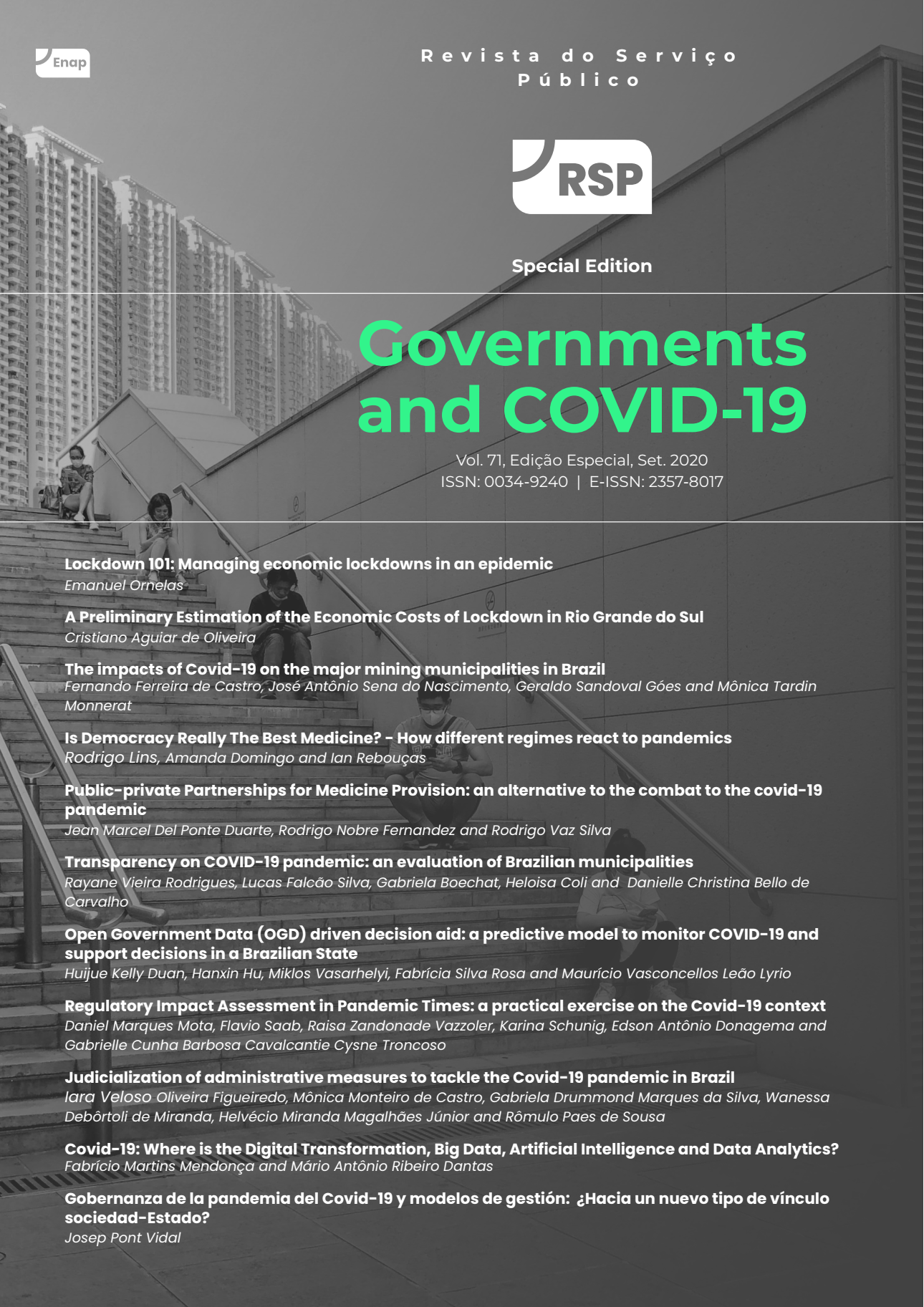Is Democracy Really The Best Medicine?
How different regimes react to pandemics
DOI:
https://doi.org/10.21874/rsp.v71i0.4936Palabras clave:
Covid-19Resumen
Pandemics are nothing new to the human race. From the Plague of Justinian to the current Covid-19, the world has seen all sorts of contagious disease. But do different political regimes react differently? We argue that the political regime has no major influence. More specifically: democratic and autocratic regimes have similar performances in taking action to combat the disease. The reasoning for this, however, vary. We do believe that the volatility is higher within the authoritarian group. To test this hypotheses, we will conduct a survival analysis, having the adoption of a strict social isolation policy as the event of interest. We will control for institutional variables, such as the presence of local governments; and for other social variables, such as population density. We will also take in consideration previous experience with Sars. Our findings corroborate our hypothesis. The difference between the two types of regime is not statistical significant. The Economy, however, seems to play small role: The richer the country is, the longer it takes to adopt restriction measures.
Descargas
Descargas
Publicado
Cómo citar
Número
Sección
Licencia
- A RSP adota a licença Creative Commons (CC) do tipo Atribuição – Uso Não-Comercial (BY-NC).
- A licença permite que outros remixem, adaptem e criem obra licenciada, sendo proibido o uso com fins comerciais.
- As novas obras devem fazer referência ao autor nos créditos e não podem ser usadas com fins comerciais, porém não precisam ser licenciadas sob os mesmos termos dessa licença.
- Ao publicar o artigo na RSP, o autor cede e transfere para a ENAP os direitos autorais patrimoniais referentes ao artigo.
- O artigo publicado na RSP não poderá ser divulgado em outro meio sem a devida referência à publicação de origem.
- O autor que tiver o artigo publicado na RSP deverá assinar o Termo de Concessão de Direitos Autorais (em momento oportuno a editoria da Revista entrará em contato com o autor para assinatura do Termo).



